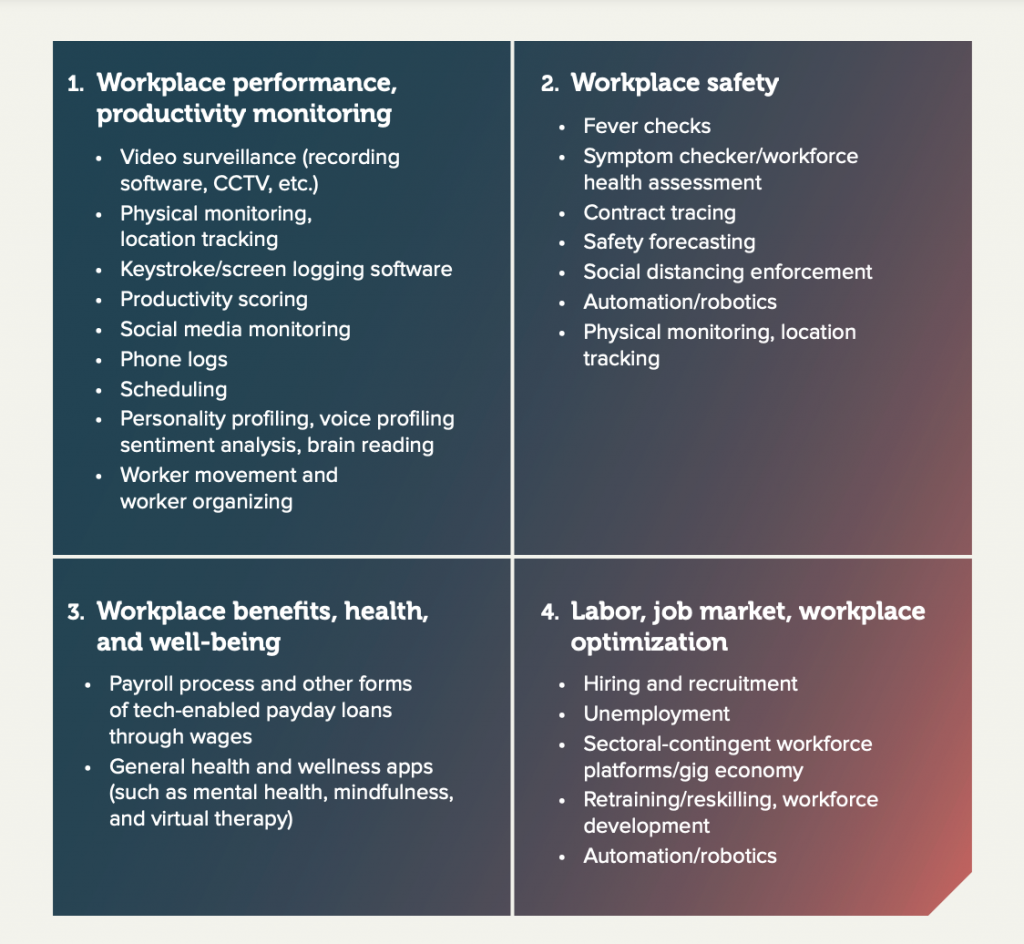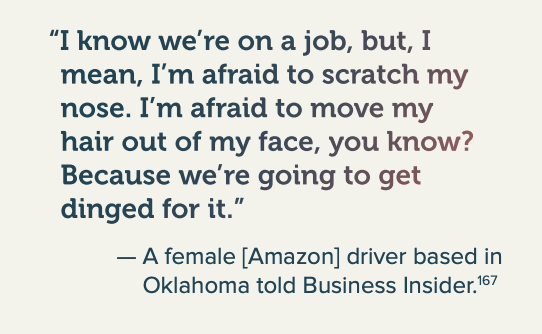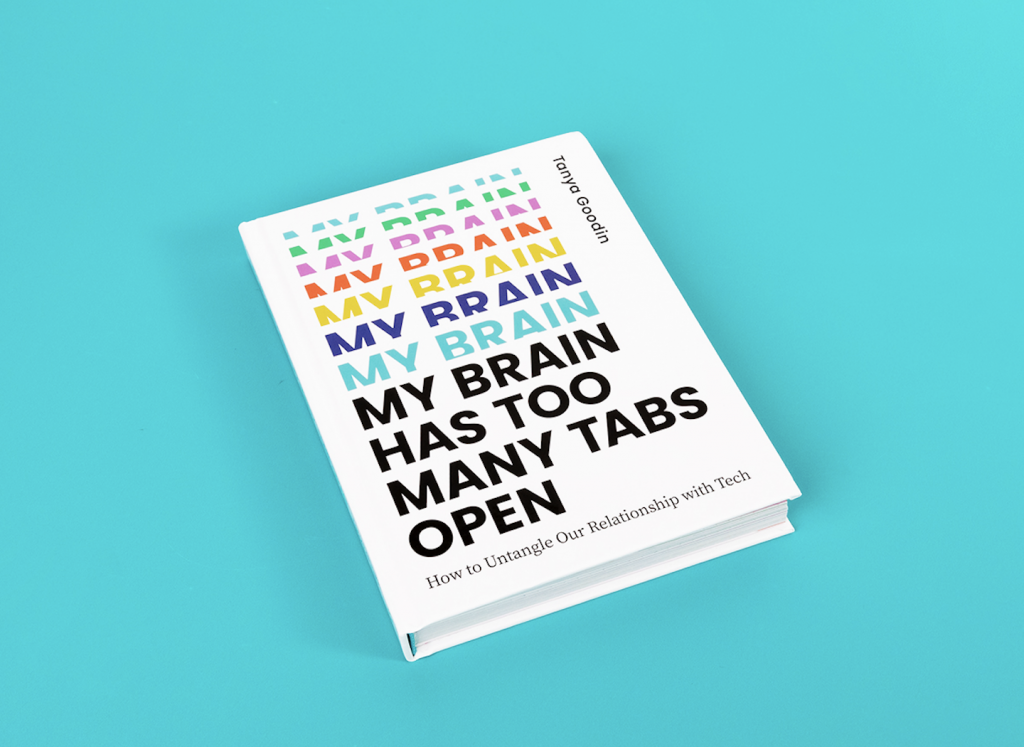The pandemic has changed a lot about our working habits. The global working from home (#wfh) movement shifted our desks from the office to the kitchen, work-life balance came into sharp focus, and Zoom calls multiplied. But one area of technology, previously growing under the radar, has been proliferating in the pandemic tech boom – so-called ‘bossware’.
The pandemic has accelerated the digitisation of all businesses, and a new wave of products has emerged which use artificial intelligence (AI) to manage, score, or monitor a company’s employees, initially developed for gig economy platforms and warehouse employees.
Employment Tech is ‘Little Tech’
While everyone’s eyes have been on the antics of Big Tech, Coworker.org, a US worker organising platform, say that what they dub ‘Little Tech’, an employment tech marketplace made up of thousands of business intelligence technology firms, startups, and app developers, is already having a significant impact on working lives.
Coworker have compiled a database of existing employee-focused tech products and found that over 30% of them emerged between 2020 and 2021. Their Little Tech Is Coming for Workers report addresses the proliferation of bossware technologies and analyses the ways in which the say they’re harming workers and employment standards.

While products focused on employee safety and health and wellbeing are to be welcomed, two areas of concern are the dramatic growth in software focused around employee productivity and monitoring, as well as hiring and recruitment being outsourced to AI, with potential for race and gender bias.
Is your boss is a robot?
Coworker’s report highlights that it is low-wage workers that are increasingly encountering bossware in the shape of ‘blackbox’, and intrusive tech products at every step of their work lives. Amazon’s warehouse workers, especially product pickers, have been reported to endure almost ’19th century cotton mill’ working conditions to meet daily picking targets which they are monitored against. And whistle-blowing Amazon drivers say they have resorted to peeing in water bottles trying to meet delivery targets of 170-350 packages per shift which is linked to their pay.

The price when ‘bossware’ goes wrong
Management through employment tech products makes an assumption that the data they provide is accurate. But the UK has recently been left reeling in the aftermath of a huge scandal involving Post Office employees who were falsely accused of fraud when their own Fujitsu bossware malfunctioned.
Between 2000 and 2015, 738 people, mainly sub-postmasters and mistresses, were prosecuted by the Post Office for theft, false accounting and fraud based on evidence drawn from Horizon, the new software system Fujitsu developed for the Post Office.
The Horizon software, introduced in 1999, has been discovered to have generated duplicate entries, lost transactions and made erroneous calculations. But, overwhelmed with a deluge of complaints about Horizon when it was first installed, the Post Office chose to place complete trust in their technology, insisting the Horizon system was infallible, rather than believing the reports of their staff.
“This approach by the Post Office has amounted, in reality, to bare assertions and denials that ignore what has actually occurred … It amounts to the 21st century equivalent of maintaining that the earth is flat.”
Justice Peter Fraser, criticising Post Office managers and Fujitsu executives
Sub-postmasters were accused of fraud and were forced to settle discrepancies from their own pockets, sometimes tens or hundreds of thousands of pounds, if they wanted to avoid prosecution. Many innocent employees were convicted and jailed.
It’s not a huge leap of imagination to visualise a similar situation happening in other business and organisations who have outsourced critical expertise and outsourced internal services to IT companies and software solutions, managing and measuring employee performance on the output from their own bossware systems.
“There remains a degree of risk that these things will happen again.”
Mike Bracken, former head of the UK Government Digital Service, commenting on the Post Office Fujitsu scandal
As in so many other examples, The Post Office case shows the risk of blindly placing faith in technological solutions against the misgivings of employees (Frances Haughen’s whistleblowing comes to mind).
Is Bossware Coming for You?
Many employees remain unaware of the extent to which automated assessment systems and tools are now involved in their management, and of the size of the data sets that can be collected about them by their employers. While EU workers are to some extent protected by GDPR laws, Coworker say that in the US ‘Little Tech’ continues to expand the data points that can be collected about workers and that data brokers and data gatekeepers are exploiting these new and emerging data niche markets, while continuing to lock workers out of their own data.
Just when we thought we’d started to make headway with Big Tech, it seems there’s a whole new class of AI-enabled employment tech companies about to take control of our lives.

My latest book My Brain Has Too Many Tabs Open is all about the ways in which technology is changing our lives – and what we can do about it.
